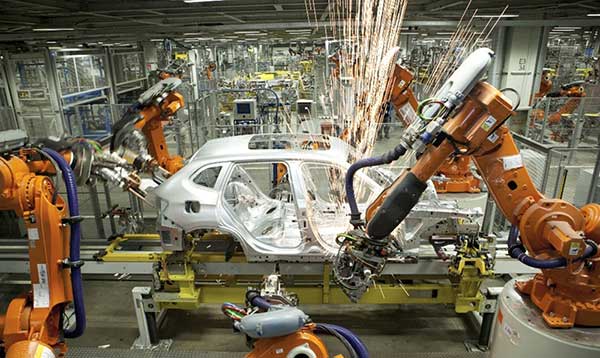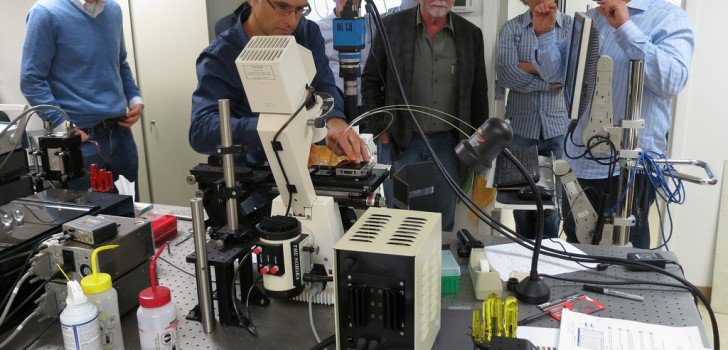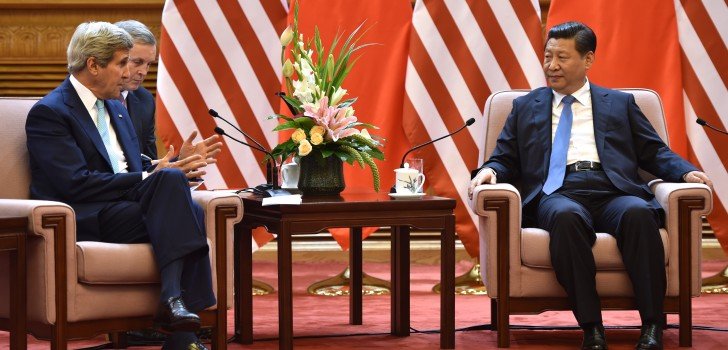In the industrial city of Dongguan, China, there are the beginnings of a technologic revolution. At Changying Precision Technology Company, some 600 manufacturing workers have recently been replaced by just 60 industrial robots, in a shift that is part of the nation’s new “Robot Replace Human” program. Scheduled to have finished over 1,000 similar programs throughout Dongguan by 2016, there is the potential for dramatic increases in productivity yet with that increased productivity comes the possibility of technological unemployment. Such gains in productivity often lead to so-called “jobless growth.”
At Changying, the new workforce has resulted in increased production of 250%, in addition to a reduction in defects from 25% down to 5%. What few human employees that do remain at the plant are merely for monitoring purposes. These numbers are all according to the People’s Daily, the official paper of the Chinese Communist Party, so should be taken with some skepticism. However, according to the German-based International Federation of Robotics, a non-profit which advocates for the advancement of robotics in society, China is expected to double the number of industrial robots in use by 2017, from 200,000 to 400,000.
China is still early in its adoption of robot labor, utilizing only 30 robots per 10,000 manufacturing workers. This ratio ranges from five to eleven times greater in places such as North America, Germany and Japan. In addition, four out of five robots in China are foreign-made, usually from Japan or Germany.
If the “Robot Replace Human” policy is implemented throughout Dongguan on a similar scale as the Changying factory, it will lead to some 1 million workers losing their jobs. Whether or not those people find a new career remains anyone’s guess. For the legions of workers currently employed in China’s factories the future looks grim as even former critics of the theory of technological unemployment are starting to reverse their positions.
Former US Treasury Secretary Larry Summers stated in 2014 that he no longer believed automation would always create new jobs. A survey among participants of the 2014 World Economic Forum meeting in Davos found that 80% of respondents agreed that technology was driving jobless growth. If jobless growth becomes a growing trend, all nations will have to decide on a strategy to prepare for their growing populations of unemployed citizens. The effects will be most acutely felt in the world’s most populous nations, especially China and India, raising fresh policy challenges for their governments.




















